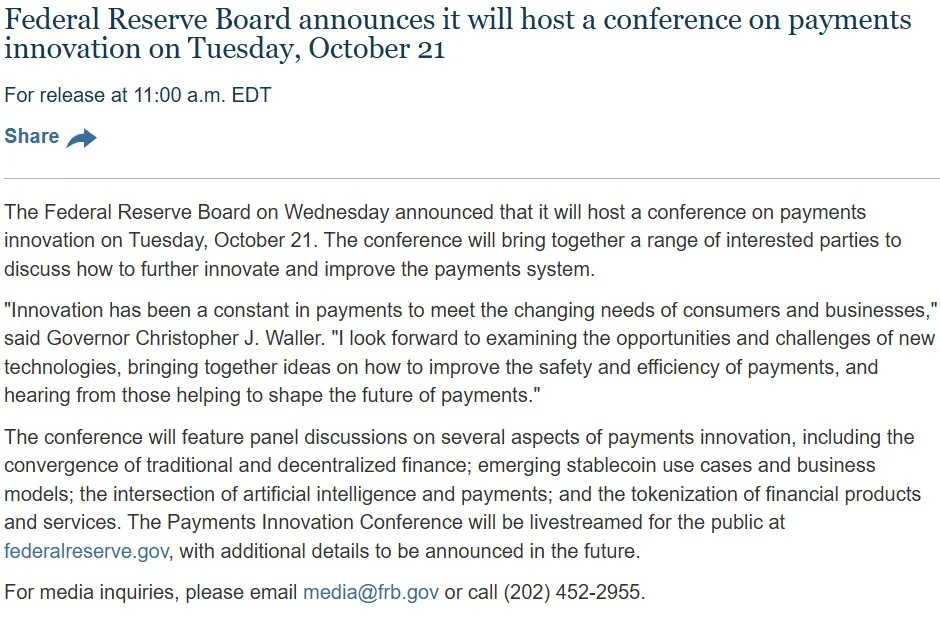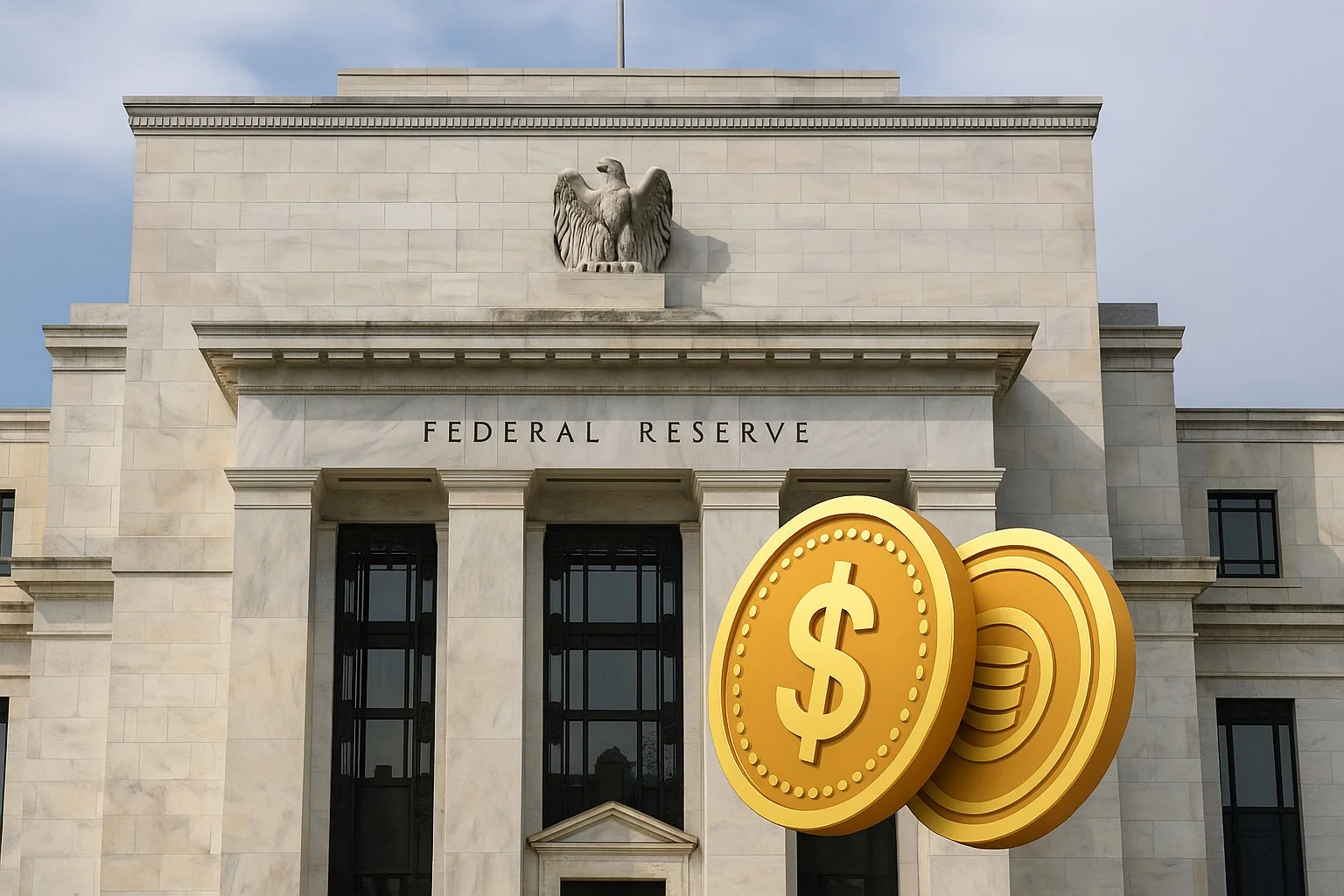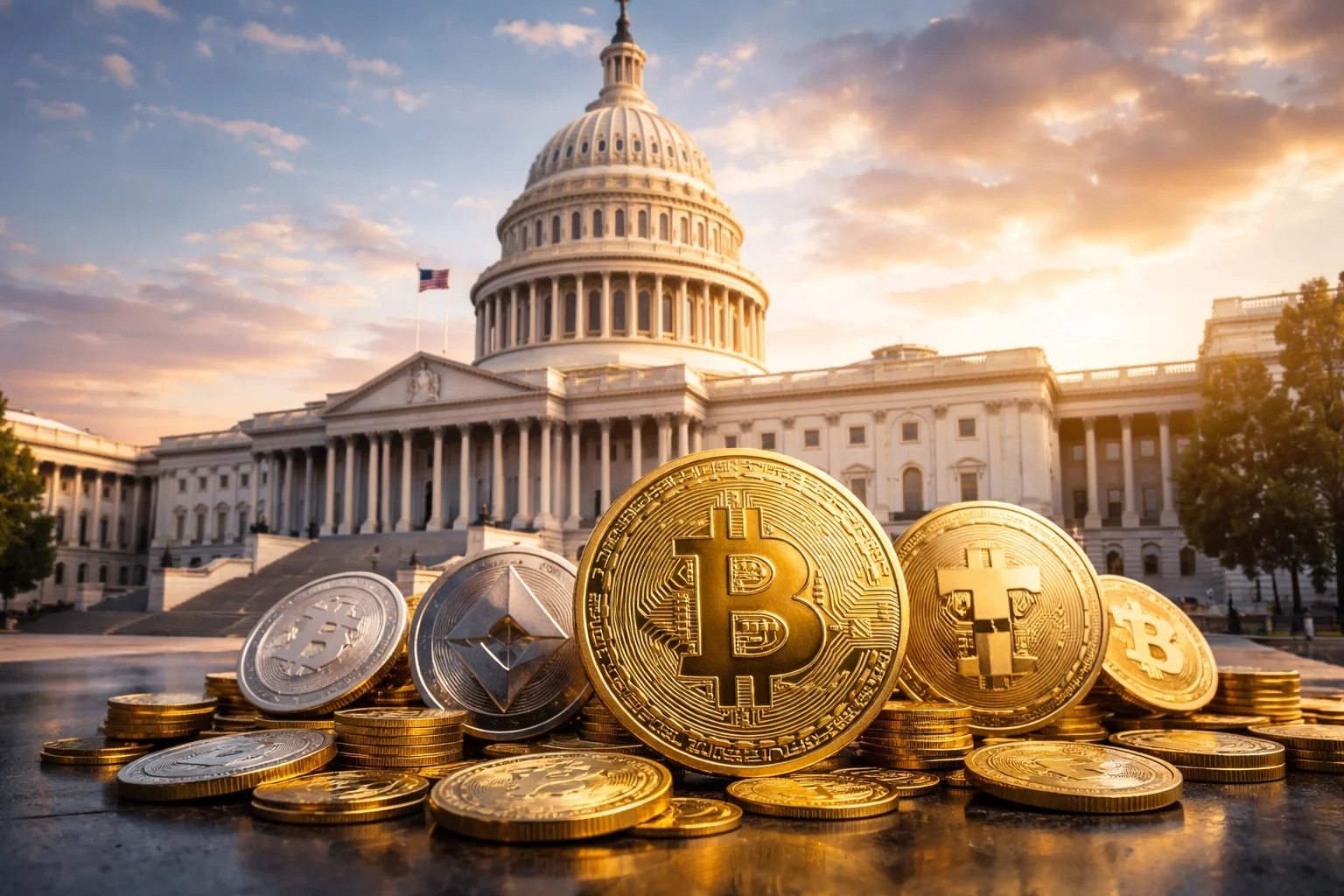The US Federal Reserve announced that it will hold a major conference on October 21, 2025, to discuss the role of innovation and emerging technologies in payment systems. This Fed event will address critical topics for both traditional finance and the crypto ecosystem: stablecoins, decentralized finance (DeFi), tokenization, and the integration of artificial intelligence into payment infrastructure.

Conference Main Agendas
According to the Fed's statement, the conference will specifically address how to make payment systems more secure, faster, and more efficient. Fed Governor Christopher Waller emphasized that innovation is essential to meeting changing customer and business needs. Waller said, "I look forward to examining the opportunities and challenges of new technologies, bringing together ideas that will enhance the security and efficiency of payments, and hearing directly from those shaping the future." Panel discussions to be highlighted at the event include:
- The convergence of traditional finance and DeFi models
- Stablecoin use cases
- Artificial intelligence applications in payment systems
- Tokenization of financial products and services
Another topic on the Fed's conference agenda is the potential impact of stablecoin reserves on the banking system. Previously released Federal Open Market Committee (FOMC) minutes indicated that dollar-denominated stablecoins could increase payment efficiency but also introduce regulatory requirements for the banking sector.
Trump-era policies and the Fed's new direction
This move by the Fed is being interpreted as a sign of a more flexible approach to crypto assets in the US. Steps taken during the Trump administration, in particular, paved the way for the central bank to develop a more open perspective on the crypto and stablecoin markets.
In April, the Fed withdrew previous guidance that made it difficult for banks to offer crypto asset services and terminated its special oversight program for banks dealing in digital assets. This development was also seen as the end of "crypto debanking" practices, which had long been a source of complaints in the industry.
Furthermore, the GENIUS Act, enacted in July, established a comprehensive federal regulatory framework for stablecoins. This law increased the auditability of stablecoins and paved the way for their wider use in the financial system.
Christopher Waller is one of the most prominent figures in this process. Appointed to the Fed by Trump, Waller describes blockchain-based financial infrastructures as a "technological evolution." In his speech at the Wyoming Blockchain Symposium, he compared DeFi transactions to credit card transactions and argued that smart contracts and distributed ledgers are a natural evolution for the financial system.
Strategic Move for the Dollar's Global Reserve Currency Status
The Fed's strong emphasis on payments innovation is also motivated by its motivation to protect the US dollar's global reserve currency status. The BRICS countries' search for alternative reserve currencies and the growing demand for gold threaten the dollar's position. Stablecoins' ability to facilitate rapid global transfers is seen as a critical tool for maintaining the dollar's effectiveness.
Waller emphasized that stablecoins facilitate access to the dollar, particularly in economies experiencing high inflation and limited access to banking services. He argues that stablecoins could further expand the dollar's global use by increasing its 24/7 availability.




